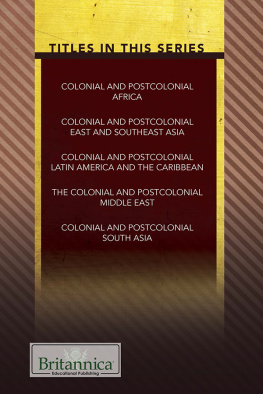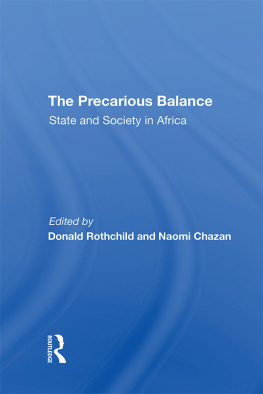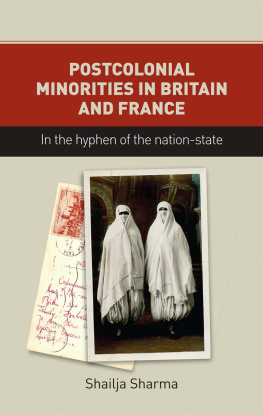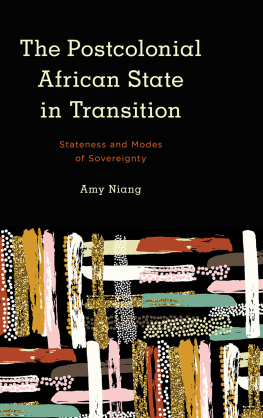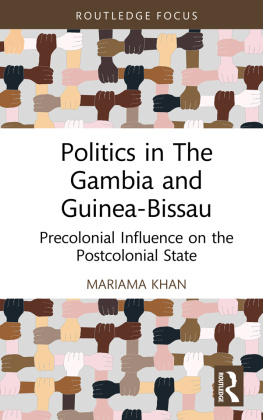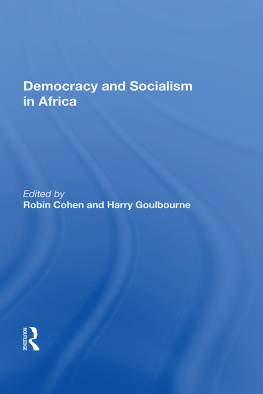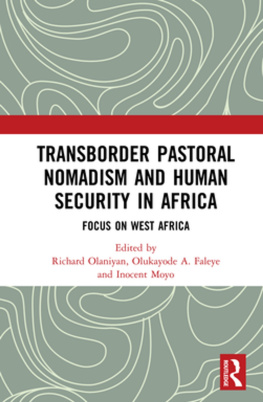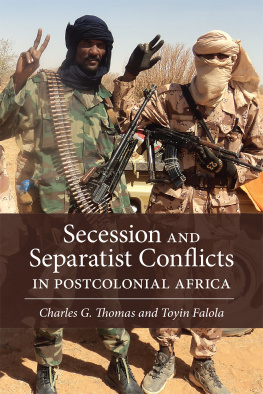STATE AND CULTURE IN POSTCOLONIAL AFRICA
AFRICAN EXPRESSIVE CULTURES
Patrick McNaughton, editor
Associate editors
Catherine M. Cole
Barbara G. Hoffman
Eileen Julien
Kassim Kon
D. A. Masolo
Elisha Renne
Z. S. Strother
STATE AND CULTURE IN POSTCOLONIAL AFRICA
Enchantings
Edited by Tejumola Olaniyan
Indiana University Press
This book is a publication of
Indiana University Press
Office of Scholarly Publishing
Herman B Wells Library 350
1320 East 10th Street
Bloomington, Indiana 47405 USA
iupress.indiana.edu
2017 by Indiana University Press
All rights reserved
No part of this book may be reproduced or utilized in any form or by any means, electronic or mechanical, including photocopying and recording, or by any information storage and retrieval system, without permission in writing from the publisher. The Association of American University Presses Resolution on Permissions constitutes the only exception to this prohibition.
The paper used in this publication meets the minimum requirements of the American National Standard for Information SciencesPermanence of Paper for Printed Library Materials, ANSI Z39.48-1992.
Manufactured in the United States of America
Library of Congress Cataloging-in-Publication Data
Names: Olaniyan, Tejumola, editor, author.
Title: State and culture in postcolonial Africa : enchantings / edited by Tejumola Olaniyan.
Description: Bloomington : Indiana University Press, 2017. | Includes bibliographical references and index.
Identifiers: LCCN 2017022483 (print) | LCCN 2017022916 (ebook) | ISBN 9780253030177 (e-book) | ISBN 9780253029713 (cloth : alk. paper) | ISBN 9780253029980 (pbk. : alk. paper)
Subjects: LCSH: Art and stateAfrica. | AfricaCultural policy. | AfricaCivilization21st century. | AfricaSocial conditions21st century.
Classification: LCC DT14 (ebook) | LCC DT14 .S73 2017 (print) | DDC 960.33dc23
LC record available at https://lccn.loc.gov/2017022483
1 2 3 4 522 21 20 19 18 17
Contents
/ Tejumola Olaniyan
/ Patrick Chabal
/ Niyi Osundare
/ Olfmi Tw
/ Michael G. Schatzberg
/ Matthew H. Brown
/ Lus Madureira
/ Nvine El Nossery
/ Sofia Samatar
/ Ken Walibora Waliaula
/ Akin Adesokan
/ Louise Meintjes
/ Lark Porter
/ Kunle Ajibade
/ Ato Quayson
/ Anne-Maria Makhulu
/ Tejumola Olaniyan
Acknowledgments
S TATE AND CULTURE in Postcolonial Africa: Enchantings emerged from my time as senior fellow in the Institute for Research in the Humanities (IRH) at the University of Wisconsin, Madison. My deep gratitude to the Institute and its director, Susan S. Friedman, for providing an ideal context for imagining and executing high-level and innovative cross-disciplinary research in the humanities. Scholars across disciplines, and practicing professionals too, responded enthusiastically to my Burdick-Vary symposium call to subject one key institutionthe state in postcolonial Africato a robust critical examination. We were all richly rewarded. My thanks to them, as well as to the dedicated staff who ran the event so well: Ann W. Harris, Spring Sherrod, Scott A. Carter, Heather DuBois Bourenane, and Valerie McLaurin. Support also came from other units such as African Studies Program, International Institute, Global Studies, Music-Race-Empire Research Circle, African Diaspora and the Atlantic World Research Circle, School of Journalism, Department of African Languages and Literature (now African Cultural Studies), Department of English, and the Louise Durham Mead professorship fund. Finally, my gratitude to Dee Mortensen, my editor at Indiana University Press, and her band of dedicated staff.
STATE AND CULTURE IN POSTCOLONIAL AFRICA
Introduction
State and Culture in Africa: The Possibilities of Strangeness
Tejumola Olaniyan
T HIS BOOK EXAMINES the broad and multisided interactions of contemporary African cultural forms and practices, and the postcolonial African state that is their generative canvas. Given the distinctive worldliness and immersive political references embodied in these cultural forms and practices, scholars have long felt the need to study them in the light of state structures and processes. Overall, the bonds and rewards of disciplinary work are still overly tight and alluring, even if this has meant less than robust attention to our objects of study. According to the logic of our structures of training, accomplished political scientists and philosophers are not expected to be so skilled in cultural criticism, while expert cultural critics can get by with the obvious basic gestures to the political domain. This is not a condemnation of disciplinary training and workthey are and should still be foundational, given the increasing volume of information and complexity of forms, structures, and processes that we study. Very clearly, disciplinary mastery is a solid basis for meaningful interdisciplinary work.
For now, the more pragmatic and achievable plea is for a reasonable effort beyond the normative disciplinary call of duty toward the admittedly harder work of broadminded listening and unassuming but focused analytical curiosity. Charged with this ethics of attention, the contributors to this book, from across disciplines in the humanities and social sciences, critically examine large and small consequential conjunctures of the postcolonial state and culture in Africa and their compound effects.
The Index annually ranks countries based on how stable they are and the key political, social, and economic pressures they face. Each country is then gorgeously color-coded on a world map on a scale from sustainable green to moderate yellow, warning orange to alert red. In a color scale refinement for the 2015 edition, the Index adds blue to the most desirable sustainable end of the spectrum, while demoting green to a middling stable; the warning spectrum is now yellow to orange, and red, in all its shades, is still for alert. Not a single state in Africa is blue or green; the majority is red, and only South Africa is demonstrably yellow. In the ten years of the Index, from 2006 to 2015, not a single African state has been colored green; virtually all range from orange to red. Like crisis, fragility is obviously rapidly becoming the norm and normative too.
From crisis to fragility, it is clear that the problematic of the postcolonial state in Africa is not just sociopolitical and economic, measurable in statistical figures of free and fair elections and growth in gross domestic product, but also epistemological, reckonable in the quality of knowledge about the structure of rule by state actors, scholars, professionals, and the general public, and the degree to which that knowledge engenders flexible and responsive state-citizen relations, policy recommendations and actions, and reasonable management oversight of competing interests. This epistemological realm is not one of data alone but foundationally of the vaster context of what constitutes data, what is its purpose, its many meanings, and its many possible paths from gathering, interpretation, and analysis to application and by whom and under which structure. This is the realm of culture writ large. This book is conceived in part as a contribution to the advancement of the much-needed epistemological task.



